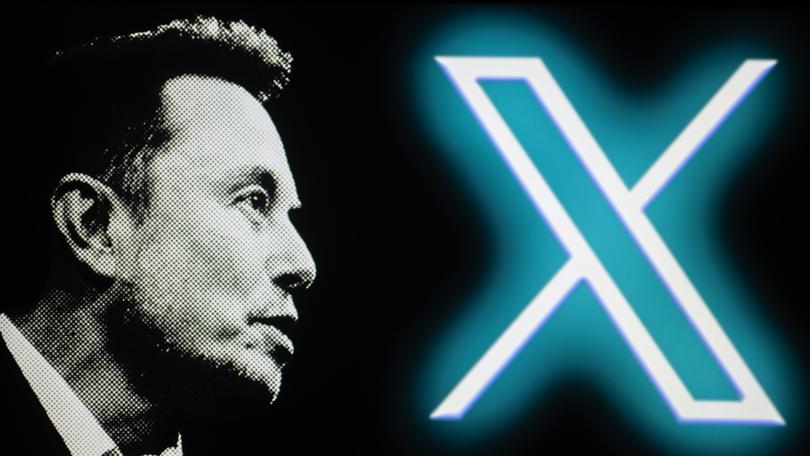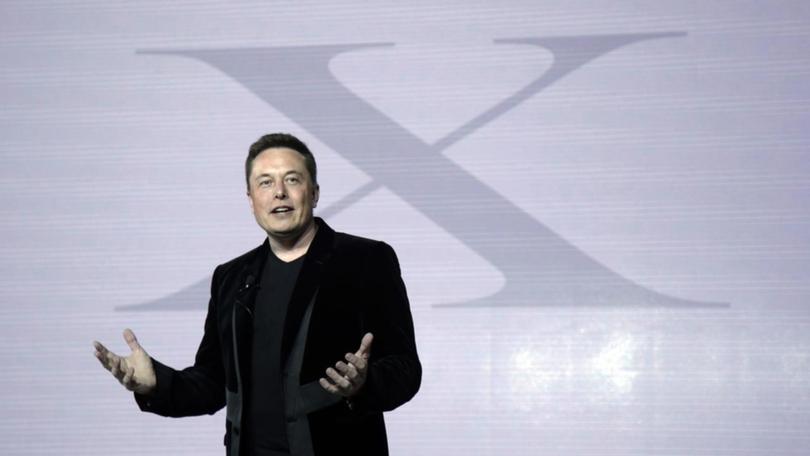The real reason behind Elon Musk’s battle with the Australian government over extremist content on X
Public relations and social media experts say Elon Musk’s month-long battle with the Australian government has kept him in the headlines and delivered the billionaire a publicity victory.

Elon Musk’s refusal to remove extremist content has likely generated more than a million dollars in free publicity and increased public awareness of himself and the social media platform X.
Public relations and social media experts said Musk’s month-long battle with the Australian government had kept him in the headlines and delivered the billionaire a publicity victory.
Veteran PR guru Max Markson, who has worked with former US President Bill Clinton and the late South African peace leader Nelson Mandela, said Musk’s battle with the Australian government would unlikely damage his standing overseas.
Sign up to The Nightly's newsletters.
Get the first look at the digital newspaper, curated daily stories and breaking headlines delivered to your inbox.
By continuing you agree to our Terms and Privacy Policy.“It’s not going to damage him just because he’s having an argument with the Australian government,” he said.
“We notice it here but elsewhere around the world they don’t give a damn.”
Mr Markson said Musk’s public stances on issues helped build the billionaire’s public profile and brand while producing media.
“That’s what they do, that’s what the product does,” he said.
“He [Musk] and the product [X] are aligned and they’re just churning out news.”
Mr Markson said he doubted the battle between Musk and the Australian government would impact the sales of Musk’s other companies, SpaceX and Tesla.
Lawyers for X Corp, formerly known as Twitter, and the eSafety Commissioner are due before the Federal Court of Australia on Wednesday for a case management hearing after Justice Geoffrey Kennett refused to extend an injunction.
It comes after Justice Geoffrey Kennett found on Monday it was unreasonable for eSafety Commissioner Julie Inman Grant to order the removal of videos of the alleged terror attack from the platform worldwide.
“The potential consequences for orderly and amicable relations between nations, if a notice with the breadth contended for were enforced, are obvious,” Justice Kennett said.
“Most likely, the notice would be ignored or disparaged in other countries.”
Musk has refused to comply with a takedown order issued by the eSafety Commissioner that demanded he remove 65 websites that showed the alleged terror attack on Bishop Mar Mari Emmanuel at the Christ the Good Shepherd Church in Wakely on April 15.
His refusal to remove the content risked a fine of $782,000 for every day it remained on the platform.
Musk, who has an estimated net worth of about US$180 billion, is a fierce proponent of free speech and has presented his refusal to remove the content as a moral decision in the fight against internet censorship.
“The Australian censorship commissar is demanding *global* content bans!” Musk declared on X, the global social media platform he owns.
The saga has dragged on for more than a month, with politicians including Prime Minister Anthony Albanese and independent Senator Jacquie Lambie taking a crack at Musk.

Sydney PR expert Billy Daniels said Musk’s battle with the Australian government would have definitely increased the profile of both the billionaire and the platform X.
“However that is just one of the benefits of staying true to the brand’s mission,” said Mr Daniels, the founder of PR company Billy etc.
“Musk states that X is about sharing ideas and information instantly without barriers, censoring the content would go against both the X brand and freedom of speech laws.”
Musk closed a US$44 billion deal to buy Twitter in October in 2022 following a messy and chaotic acquisition period.
Days later he tweeted an open letter to advertisers that said he’d purchased the social media platform to “help humanity, whom I love”.
“The reason I acquired Twitter is that it is important to the future of civilisation to have a common digital town square, where a wide range of beliefs can be debated in a healthy manner, without resorting to violence,” said Musk.
The billionaire, like former US President Donald Trump, was a virulent user of the social media platform that had taken centre stage in a culture wars debate over an individual’s right to free speech.
Social media strategist Meg Coffey said Musk’s fanboys would spin his legal victory against Australia as a win for free speech but said she was unconvinced the billionaire actually cared about the issues he championed.
“He just wants to be the centre of attention, he doesn’t like it when he’s not in the headlines,” she said.
“It’s definitely started bigger conversations around the internet and sown discord amongst other people, so he’s happy, he’s stirring the pot.”
Ms Coffey said the platform’s days as a town square were well and truly over.
Posting on X after the judge’s ruling on Monday, Musk said he was “not trying to win anything”.
“I just don’t think we should be suppressing Australian’s (sic) rights to free speech,” Mr Musk wrote.
With the injunction lapsed, the matter is set to return to court on Wednesday for a case-management hearing.
The Nightly approached Musk and the office of the eSafety Commissioner for comment.

